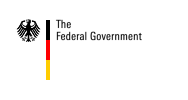Okinawa 2000:
Health is key to prosperity. This was the theme of the G8 summit in Okinawa in 2000. The fight against infectious diseases became a highlight of the Japanese presidency. The member states committed themselves to extensive cooperation with the WHO, pharmaceutical companies and research institutes.
In doing this, the G8 sought to achieve three key UN targets: to reduce the number of HIV infections among young people by 25 per cent by 2010, and to reduce deaths from TB and the burden of Malaria by 50 per cent by the same year.
The G8 undertook to provide increased financial aid and also convened a special conference – "a quantum leap" in the history of the Group.
Genoa 2001
Together with the UN, the G8 launched the Global Health Fund. Up to now, the G8 have made more than 1.4 billion US dollars available for the fight against infectious diseases. The fund is managed in the form of a public-private partnership.
Evian 2003
The G8 initiative continues in the 2003 action plan on health, which also includes polio and SARS. The intention is to use additional funding to eradicate polio.
Sea Island 2004
The heads of state and government endorse a strategy for the foundation of a global HIV medication manufacturing programme, under which international research establishments and firms would work together to discover a reliable medication for people infected with HIV.
St. Petersburg 2006
The G8 stress the importance of global cooperation in monitoring infectious diseases, with special reference to H5N1.
German contribution
The Federal Republic gives around 300 million euros per year for the prevention and control of HIV, malaria and tuberculosis and the development of the health care system.
With 800 million euros, Germany is the largest provider of funding for bilateral water projects, which are an important basis for the fight against infectious diseases.
Further 40 million euros flows into bilateral projects in Africa and Asia to combat bird flu and develop treatment methods.
